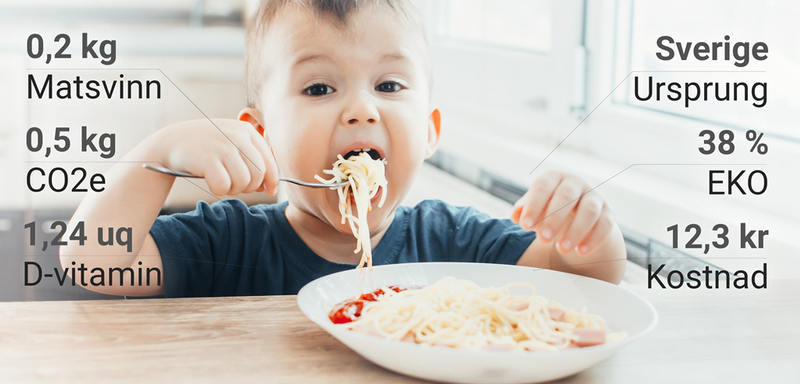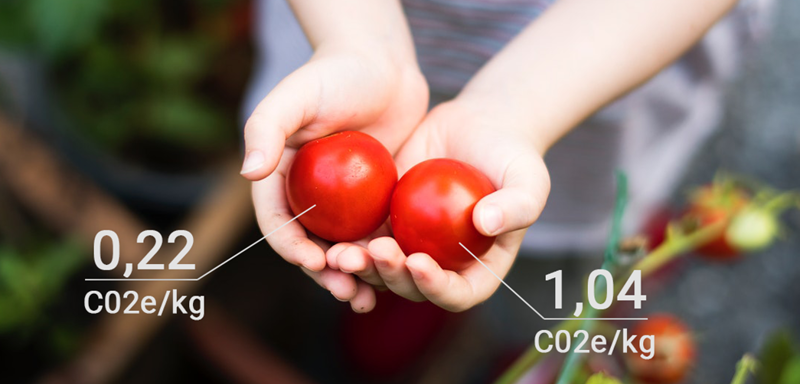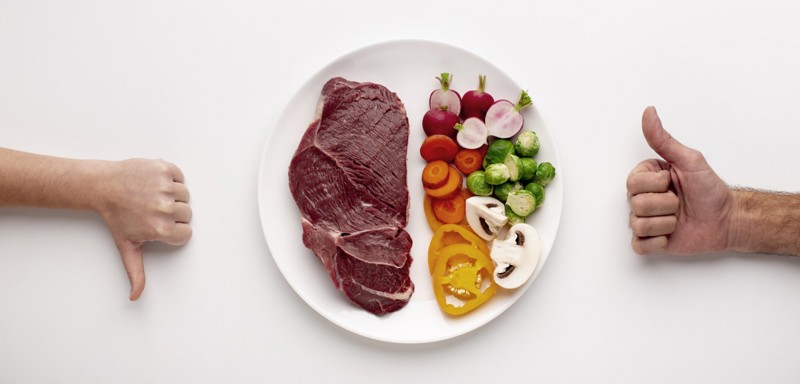Foodtech creates new opportunities
Food is so much more than what is on the plate.
“Public sector meals are a strategic tool with which you can achieve almost anything”, says Johan Jörgensen, founder of Sweden Foodtech.

Foodtech has become a trendy word and concept that many throw around, but what is it - really?
Well, in short, it's about using innovation, data and digital technology to change the production, distribution and consumption of food. For example, it could be new techniques for growing meat substitutes in a laboratory, apps that tailor food programmes according to age, weight and needs, or digital traceability systems that make it possible to follow the journey of various food products all the way from farm to fork.
“Foodtech is about transformation between food systems with the help of data and innovation”, says Johan Jörgensen, founder of Sweden Foodtech - a platform and meeting place for Swedish actors in the foodtech industry.
The goal is to make Sweden a kind of Silicon Valley for the food sector and contribute to the transformation needed to meet all the challenges of the future, not least in terms of health, climate and environment.
“What makes the food sector particularly interesting is its complexity and the fact that it intersects with several other industries, including healthcare. Today, a lot of money is spent on food, but also a lot of money on healthcare because of the food we eat.”
According to Johan Jörgensen, there is a huge misconception about what food and meals actually are.
“Food is not what is on the plate but the effects of the choices you make and the food you eat. Food is also a strategic tool with the help of which you can achieve almost anything”, he says, and mentions, among other things, increased sustainability, working preventively with health as well as integration - bringing people closer together.
“The problem is that ordinary people cannot navigate all this, it is far too complex. For many, food is an eternal ten-dish cycle that is difficult to get out of; inspiration and knowledge are required if you are to be able to achieve something with food.”
Which brings us to the public sector meal – because here there is both knowledge and professionals.
“Public sector meals have come a long way and are some of the best served in Sweden. They are composed by knowledgeable professionals who have clear goals for sustainability and health and who cook the food efficiently in large batches with the help of smart machinery”, says Johan Jörgensen.
He thinks it's embarrassing that we spend so little money on public sector food compared to what an incredibly cost-effective tool it could be, not least for increased well-being and to raise children's performance at school.
“The challenges society and the whole world are facing right now cannot be solved in an old-fashioned and individual food system where the amateurs have the power over the meals. We need to shift that power to the professionals. But then they must have data and digital solutions in the kitchen to act on.”
Johan Jörgensen believes that the food system is based on "false mathematics" and refers to an international study from the Rockefeller Foundation, which shows that American people buy food for one thousand billion dollars a year, but that the negative environmental consequences that the food gives rise to in turn costs a thousand billion and the negative consequences for health and healthcare just as much.
“The food is therefore three times as expensive as we think it is. Think how much money we could spend on quality instead of volume if we start thinking in new dimensions”, he says and adds:
“And you nutrition managers and chefs are some of the most important employees in the whole world so that we can achieve sustainable health for everyone!”
Three future visions
Here are three examples of how foodtech could be used in the school restaurant of the future:
Health
Menu that is tailored at group level. Further education students may have to have different food than primary school pupils, and even those who exercise a lot can be offered other options.
Sustainability
Automatic adaptation of the rolling menu to the season, where ingredients and recipes are adjusted according to what is best and most affordable at the moment.
Pedagogy
Advanced and digital scheduling of breakfast, lunch and snacks, where the school day is planned according to the meals instead of the other way around.

Foodtech
Food and data go hand in hand
Food is vital to humanity, but food is also data. Society places increasingly high demands on what we eat, how the food ends up on the pl...

Sustainability
Climate-smart food is not more expensive
From the Swedish Food Agency's survey “Hur ser beslutsfattare på den offentliga måltiden?” (How do decision-makers view the public sector...

Sustainability
What is actually most sustainable?
Meat, vegan, locally produced and organic - what is actually most sustainable from an overall perspective? We enlist the help of three ex...